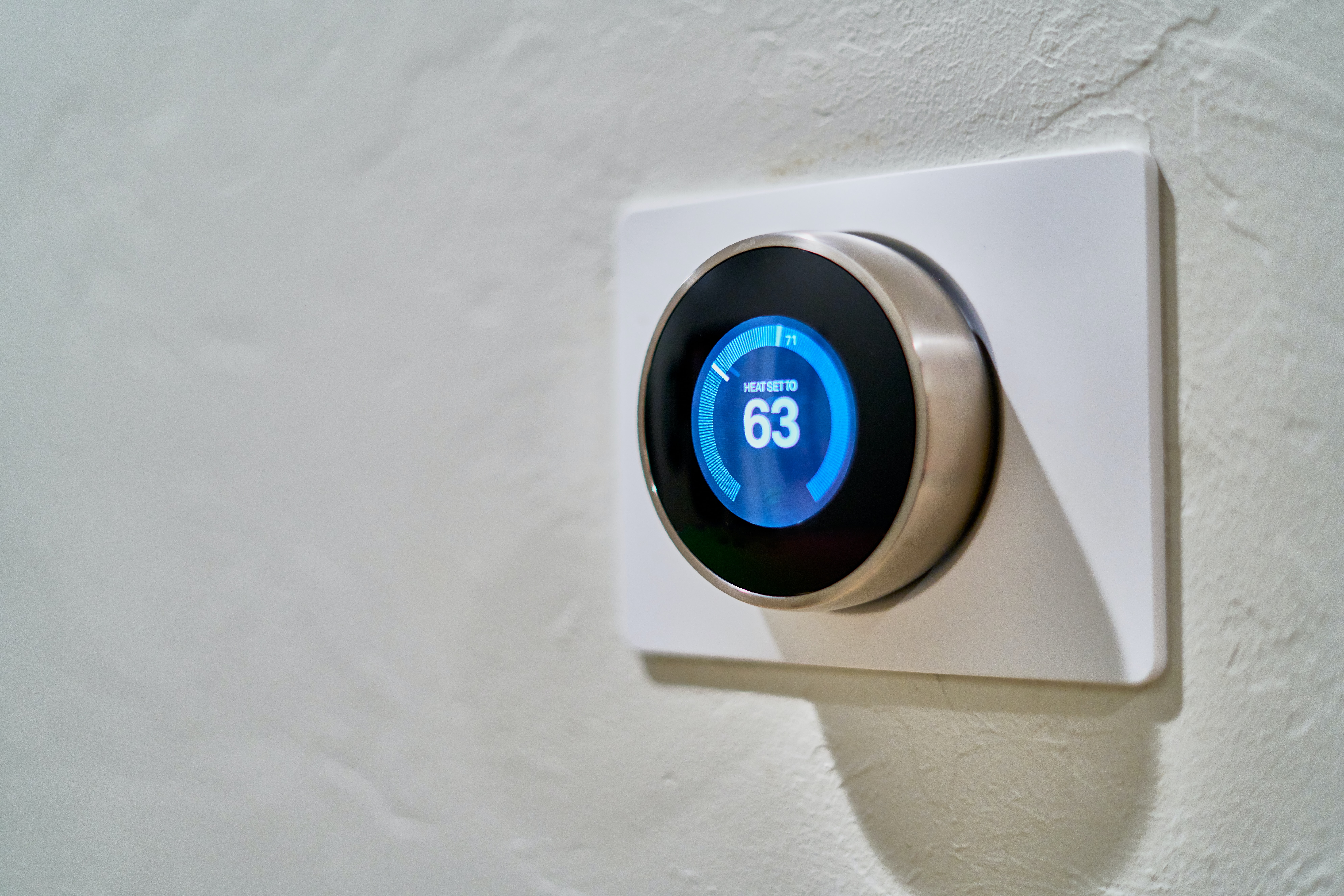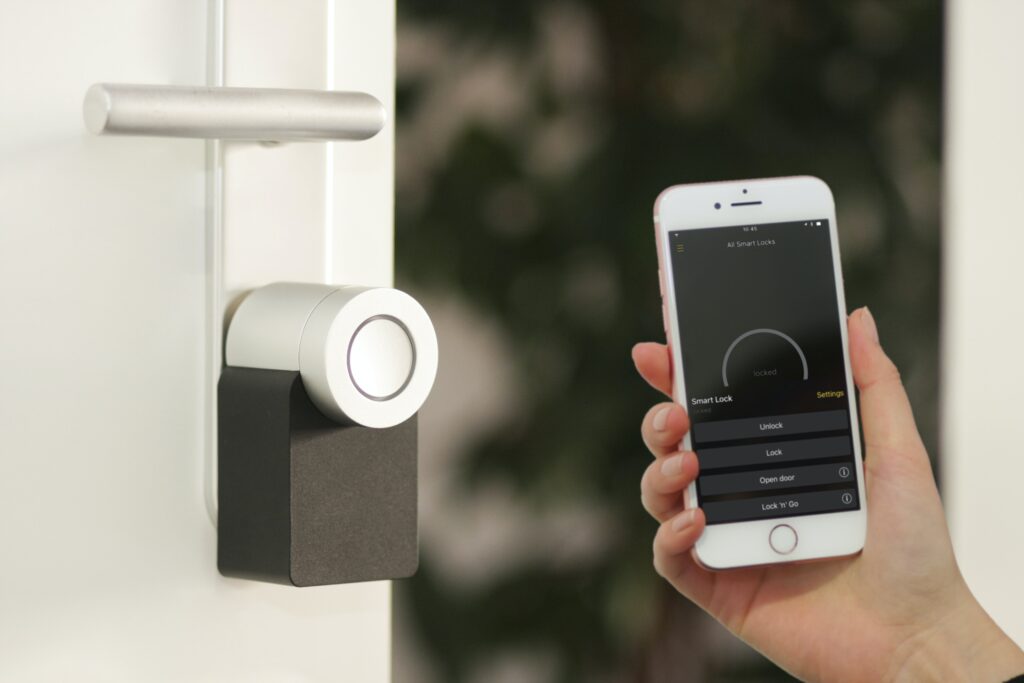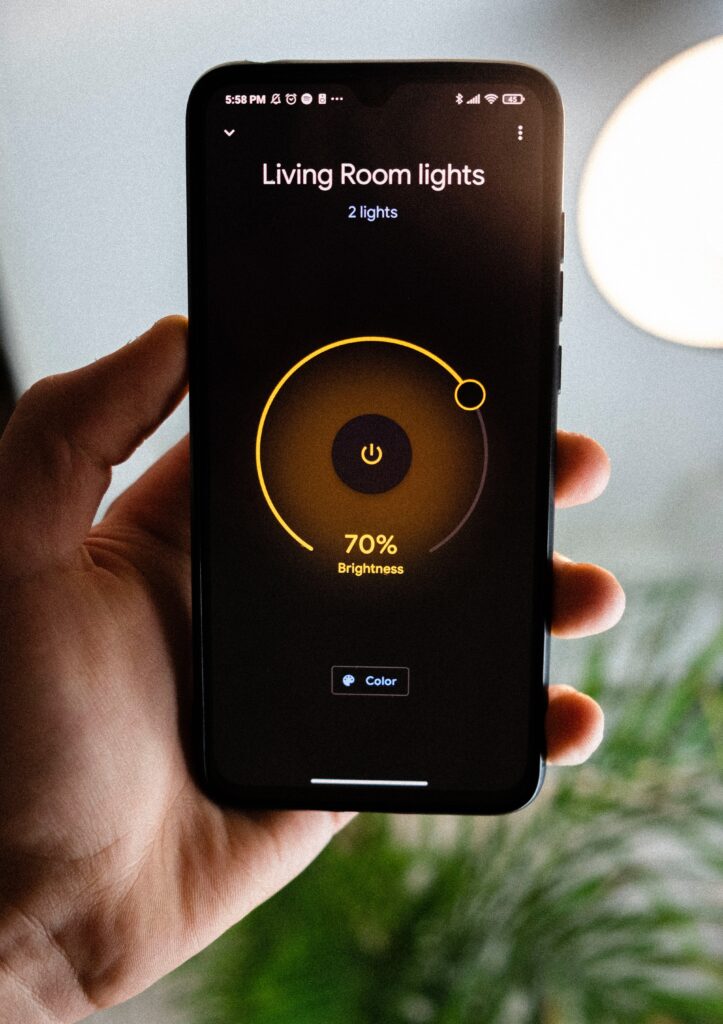
The Internet of Things (IoT) is a revolutionary concept that has fundamentally altered the way we live, work, and interact with our environment. IoT refers to the network of physical devices — from everyday household items to sophisticated industrial tools — that use sensors and software to communicate and exchange data over the internet. At the heart of this IoT revolution lies smart home solutions, a subset of IoT that focuses on enhancing and automating the domestic environment.
Smart home solutions are essentially systems and devices that allow homeowners to control and monitor their home remotely. These include everything from smart thermostats and lighting systems to advanced security systems and appliances. With these smart devices, you can now control the various aspects of your home with a simple tap on your smartphone or through voice commands.
The driving force behind smart home solutions is the desire for more convenience, security, and energy efficiency. These solutions are designed to make homes more comfortable, safer, and more energy-efficient. In essence, smart home solutions are about enhancing the quality of life through technology.
The Evolution of Smart Homes
The concept of smart homes is not entirely new. It dates back to the 1960s when the first home automation systems were developed. However, these early systems were rudimentary and expensive, limiting their adoption to a small niche of tech enthusiasts and the wealthy. The real game-changer came with the advent of the internet and the proliferation of smartphones.
The internet provided the infrastructure necessary for devices to communicate, while smartphones served as the perfect interface for users to interact with these devices. Furthermore, the introduction of artificial intelligence and machine learning has taken smart home solutions to a new level, enabling devices to learn from user habits and preferences and make intelligent decisions on their behalf.
Today, smart home solutions are no longer a luxury but a growing trend. According to a report by MarketsandMarkets, the global smart home market size is expected to grow from USD 78.3 billion in 2020 to USD 135.3 billion by 2025, at a CAGR of 11.6%. This growth is driven by several factors, including the increasing consumer preference for convenience and safety, the growing awareness about energy conservation, and the rapid proliferation of smartphones and digital assistants.
The Power of IoT: Transforming our Everyday Lives
The power of IoT and smart home solutions can be seen in how they are transforming our everyday lives. From the moment we wake up to the time we go to bed, smart home solutions are making our lives easier, safer, and more convenient.
Imagine waking up to a home that has already anticipated your morning routine. Your smart thermostat adjusts the temperature based on your preference, your smart coffee maker brews your coffee just in time for you to wake up, and your smart blinds automatically open to let in the morning sunlight. This is not a futuristic scenario but a reality for many people who have embraced smart home solutions.
Beyond convenience, smart home solutions are also making our homes safer. With smart security systems, homeowners can monitor their homes remotely, receive alerts when unusual activity is detected, and even lock or unlock their doors from anywhere in the world. Moreover, smart smoke detectors and water leak sensors can alert homeowners to potential dangers before they turn into disasters.

The Role of Smart Home Solutions in Energy Management
One of the most significant benefits of smart home solutions is their potential to save energy. By optimizing the use of appliances and systems in the home, these solutions can significantly reduce energy consumption and, consequently, energy bills.
Smart thermostats, for example, can learn your schedule and preferences, adjusting the temperature when you’re home and conserving energy when you’re away. Similarly, smart lighting systems can automatically turn off lights in unoccupied rooms, and smart plugs can cut power to appliances that are not in use.
Furthermore, smart home solutions can provide homeowners with detailed energy usage data, allowing them to identify energy-guzzling appliances and habits. By providing insights into energy usage, these solutions empower homeowners to make informed decisions about their energy consumption and contribute to a more sustainable future.
Security and Surveillance: How Smart Home Solutions Enhance Safety
Smart home solutions play a critical role in enhancing home security and surveillance. With the advent of IoT, traditional security systems have evolved into smart security systems that provide more comprehensive and sophisticated protection.
Smart security systems can include a wide range of devices, such as smart locks, security cameras, motion sensors, and alarm systems. These devices can be controlled remotely through a smartphone app, allowing homeowners to monitor their homes in real time, receive alerts about potential security threats, and take immediate action.
Moreover, smart home solutions can also enhance safety within the home. For example, smart smoke detectors can alert homeowners to the presence of smoke or fire, and smart water leak sensors can detect leaks and prevent potential flooding. By providing timely alerts, these solutions can help prevent accidents and mitigate damage.
Convenience and Comfort: The Lifestyle Benefits of Smart Home Solutions
Smart home solutions are not just about security and energy management; they’re also about enhancing lifestyle and comfort. With smart home technology, mundane tasks can be automated, freeing up time for more important things.
“Smart homes are not just about convenience and innovation. They are a testament to how technology can enhance safety, promote wellness, and ensure sustainability in our daily lives. But as they become an integral part of our lives, we must always remember that the security of these devices is as important as their functionality.”
For instance, smart appliances can take the hassle out of household chores. A smart washing machine can automatically adjust settings based on the load; a smart fridge can alert you when you’re running low on groceries, and a smart oven can ensure your meals are cooked to perfection. Similarly, smart entertainment systems can curate playlists based on your mood, and smart lighting can create the perfect ambiance for any occasion.
Moreover, the integration of digital assistants like Amazon’s Alexa or Google’s Assistant into smart home systems allows for voice control, adding another layer of convenience. Whether it’s turning on the lights, adjusting the thermostat, or playing your favorite music, all you need to do is ask.
Health and Wellness: IoT in the Home Health Care Sector
Beyond comfort and convenience, smart home solutions are also making strides in the health and wellness sector. IoT technology is increasingly being used to support in-home health care and promote wellness.
Smart health devices, such as wearables and remote health monitoring systems, can track vital signs, detect falls, and even remind users to take their medication. This not only provides peace of mind for individuals living alone but also allows caregivers to monitor the health of their loved ones remotely.
Moreover, smart home solutions can contribute to wellness by creating a healthier living environment. For example, smart air purifiers can improve air quality, smart sleep systems can optimize sleep patterns, and smart lighting can mimic natural light to support mental well-being.
Challenges and Solutions for Implementing Smart Home Solutions
Despite the many benefits of smart home solutions, there are also challenges to their implementation. These include the high cost of smart devices, concerns about data privacy and security, and the complexity of setting up and managing a smart home system.
However, these challenges are not insurmountable. The cost of smart devices is expected to decrease as the technology becomes more mainstream. For data privacy and security, manufacturers are continually working on strengthening the security features of their devices. As for the complexity of setting up a smart home system, there are now many professional services available to help homeowners get their smart home up and running.

In the end, the key to successfully implementing smart home solutions lies in careful planning and choosing the right solutions that best fit your needs and lifestyle.
Future Trends in Smart Home Solutions
Looking ahead, the future of smart home solutions is promising, with several exciting trends on the horizon. Artificial intelligence and machine learning will continue to play a significant role, with smart devices becoming more intelligent and proactive.
One trend to watch out for is the rise of smart home ecosystems. As smart devices become more interconnected, we can expect more seamless and integrated smart home experiences. Another trend is the increasing focus on sustainability, with smarter energy management systems and eco-friendly smart devices.
Moreover, as 5G becomes more widespread, it will enable faster and more reliable communication between devices, unlocking new possibilities for smart home solutions.
Navigating the Crypto World: A Comprehensive Comparison of Proof of Stake vs Proof of Work
Conclusion: The Future of IoT and Smart Home Solutions
In conclusion, the power of IoT and smart home solutions is undeniable. From enhancing security and convenience to promoting energy efficiency and wellness, these technologies are transforming our homes and our lives in profound ways.
While there may be challenges to overcome, the future of smart home solutions is bright. With ongoing technological advancements and a growing emphasis on sustainable living, smart homes are set to become not just a trend but the new standard.
As we look to the future, the question is not whether smart home solutions will become mainstream but how they will continue to evolve and shape our lives in ways we can’t even imagine. The possibilities are limitless, and it’s an exciting time to be part of this smart home revolution.
From Traditional to Modern: The Unavoidable Shift to Digital Business Transformation








